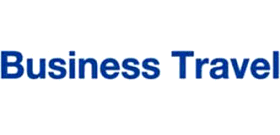 6 Reasons Not to Cut Your Corporate Travel Budget
6 Reasons Not to Cut Your Corporate Travel Budget
It’s not a state secret that business travel has taken a significant knock. The COVID-19 pandemic brought the corporate travel world to complete standstill in 2020. Although we are now seeing a slow and gradual return to the skies for business travellers, it is unlikely the demand will ever reach pre-COVID levels again.
Unfortunately, less travel may not equal a reduction in travel and expenses quite yet. Flexible fares, fewer flights and fewer routes mean a higher price tag – and you don’t want to scrimp on budget accommodation or untested suppliers during a global pandemic.
Oz Desai, General Manager Corporate Traveller, looks at ways to maximise your travel budget – tailoring it to your business’s unique travel requirements.
Higher airfares and reduced scheduling
Several international airlines have temporarily pulled out of South Africa, while domestic airlines have removed certain routes and implemented reduced schedules. Fluctuating curfews have also resulted in price hikes due to yield management.
“Budgeting for business travel in 2021 means allocating resources to increased airfares and preparing for sudden changes to flight schedules, which may result in additional fees,” warns Desai.
To do this effectively, he advises it is important to note that you are now only allocating a budget for essential business travel, allowing you to reduce the number of employees you would usually schedule for trips and the number of trips planned. This will assist you in keeping to a budget that is in line with previous years’ costs, despite the current increase in airfares.
You also need to decide if you are prepared to book the seat next to your employee as an additional ancillary to protect them against the risk of contraction or if you are comfortable for them to travel alongside another passenger. If you intend to implement the former, you must allocate a budget for this upfront.
Incorporate frequent budget reviews
Travel line items need to be more fluid in 2021, according to Desai. Yearly reviews will not cut it in the current climate, in fact, a quarterly a review may not be enough! The lead time for planning your travel budget has shortened considerably and conducting a monthly budget review has now become crucial to success.
Avoid programme leakage
It has also become more important than ever for you to ensure that your employees do not book travel independent of your travel programme.
Programme leakage prevents accurate consolidation, which results in expenditure outside of the allocated budget. It is also more difficult for your TMC to negotiate improved rates with suppliers on the company’s behalf as the full force of the data is not there to prove client loyalty. This reduces the likelihood of securing the best rates and lowering your cost of travel where possible.
Answer the question of chain properties versus guesthouses
If you are considering using chain properties instead of Bed-and-Breakfasts for potential safety protocol improvements, there will be a cost implication. The good news is that no chain property has increased their rates from 2020 to 2021, lessening the price gap.
However, if it is still beyond your budget to book chain properties, your TMC will be able to provide duty of care and ensure there are protocols in place before booking a Bed-and-Breakfast for your travellers.
Tackle Covid travel insurance
Does standard travel insurance cover you if your employee contracts COVID on a trip and has to self-isolate? Well, in certain instances, yes, in others, no.
You are covered in so far as your employee tests negative before their flight and does not test positive before leaving the airport in their destination country. In this case, you should be covered for the cost of quarantine in a hotel.
However, it is worth setting aside a budget in case an employee tests negative in SA and positive on touch down in their destination. In which case, you are liable for the costs of the quarantine period.
Review your approval process
COVID-19 has fundamentally changed the way most companies approach their approval process. Your TMC will work closely with you to develop a process that is optimised for your specific needs.
A TMC will make sure you have clear guidelines in place on what is deemed ‘necessary’ or ‘essential’ travel, allowing approvers can make quick decisions. They will also help you automate the process as much as possible through efficient technology, so that approvals won’t cause additional stress for travellers and bookers. Once you achieve the perfect approval balance, the process can be an effective way of curtailing spend, while helping you keep your travellers safe.
“There are no hard and fast rules for budgets this year; however, if you focus on a few key pain points resulting from the current, dynamic travel environment, you will be able to piece together the best approach for your organisation,” concludes Desai.
